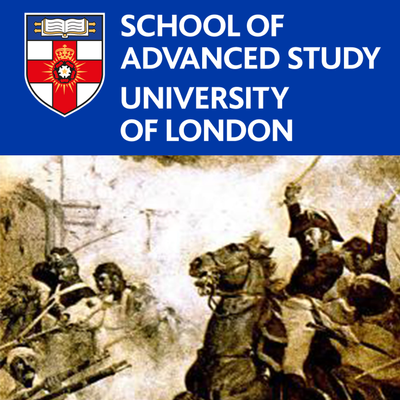
Latin American History Seminars
Podcast von School of Advanced Study, University of London
Nimm diesen Podcast mit

Mehr als 1 Million Hörer*innen
Du wirst Podimo lieben und damit bist du nicht allein
Mit 4,7 Sternen im App Store bewertet
Alle Folgen
39 FolgenInstitute of Historical Research Democracy, Autocracy and Sovereign Debt in Mexico and Brazil during the pre-1914 Globalisation Leonardo Weller (Fundação Getúlio Vargas, São Paulo) Sovereign debt is a financial as well as a political topic. Politics shapes the way governments borrow and repay. The existing historical literature on the pre-1914 sovereign debt market focuses on creditors (the supply side) and assumes that autocratic regimes are more likely to default than democracies. We claim that this model is oversimplified. In order to propose an alternative model, we research several combinations between polity and credit records across major debtors (the demand side) from 1870 to 1914. This presentation analyses some preliminary results of this broad project. It addresses two specific cases: Brazil, an oligarchic regime whose records oscillated between good and bad depending on political stability; and Mexico, an autocratic and creditworthy regime whose capacity to pay deteriorated after a democratically-elected government took office. Latin American History seminar series
Institute of Historical Research Reindigenisation and Culture in the Andes (Nineteenth Century) Adrian Pearce (University College London) Latin American History seminar series
Institute of Historical Research Using Painted Maps as Evidence: Images in Colonial Mexico's Land Grant Proceedings Ana Pulido-Rull (University of Arkansas) Latin American History seminar series
Institute of Historical Research Imperial rivalries, insurgents and spies: Britain and Spain during Latin American Independence Gregorio Alonso (Leeds) Latin American History seminar series
Institute of Historical Research The Party of Order and Progress: The European revolutions of 1848 and the Mexican Conservative Party Ed Shawcross (University College London) The study of conservatism has often been seen as a topic of secondary importance; historians have conventionally preferred to research groups that played a “progressive” role in society. This is particularly the case in Mexico where the Conservative Party, founded in 1849, was caricatured by its liberal opponents as supporting a blind reaction that looked backwards to Mexico’s colonial past. The defeat of conservatives by liberals in the War of Reform (1858-61) and again with the execution of the Emperor Maximilian followed by the collapse of the Second Mexico Empire (1867) saw this negative interpretation become embedded within Mexican national discourse and accepted by many historians. However, this paper argues that rather than focussing on Mexico’s past, conservatives proposed a path to modernity that embraced a distinctively post-1848 mode of politics. This was characterised by a technocratic vision of progress, the adoption of elements of democratic politics, and was influenced by events in Europe, particularly the example of Louis-Napoléon in France and the French Second Empire. Far from being caught up in a parochial obsession with national issues, Mexican conservatives understood themselves to be part of what they termed an “international reaction” against the ideas and doctrines of the European revolutions of 1848. This paper explores the international events and transnational currents of thought which influenced Mexican conservatism in the mid-nineteenth century. Latin American History seminar series























